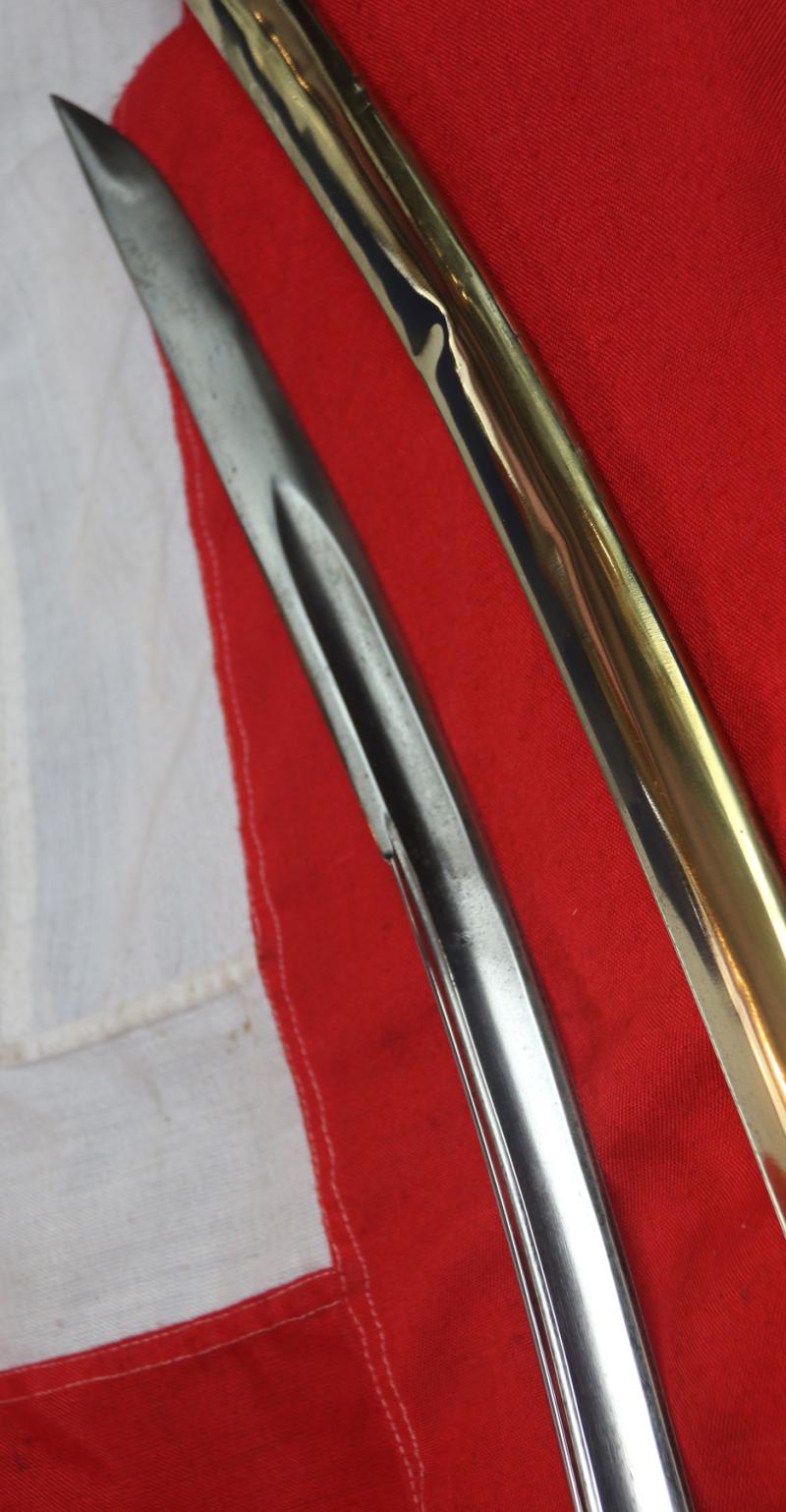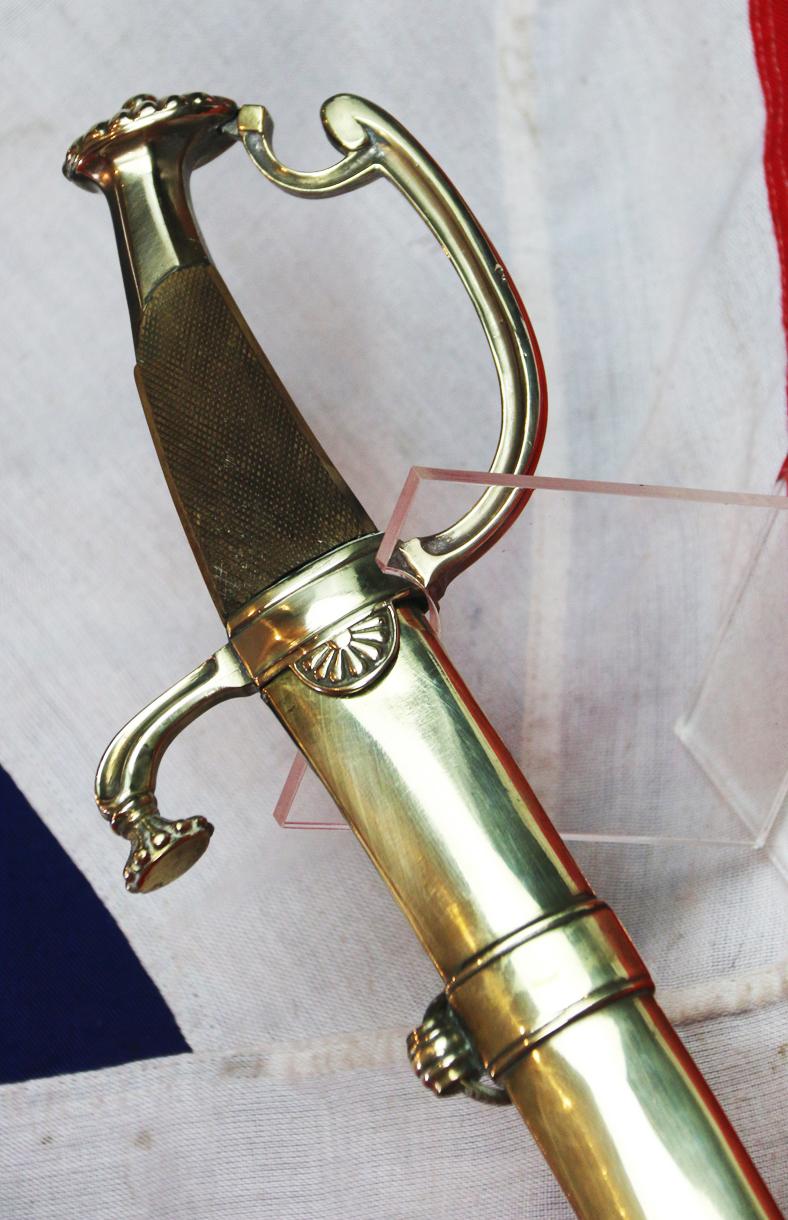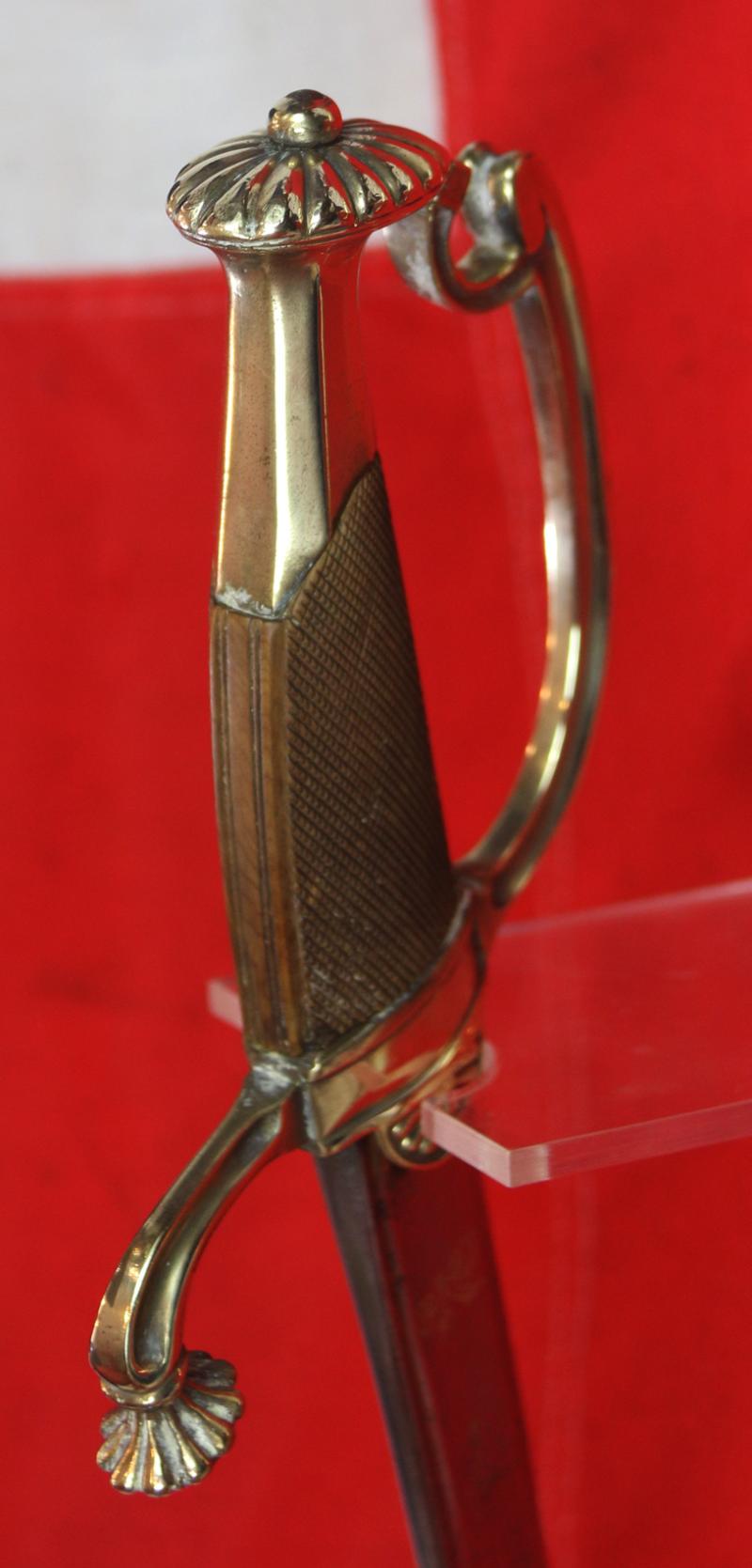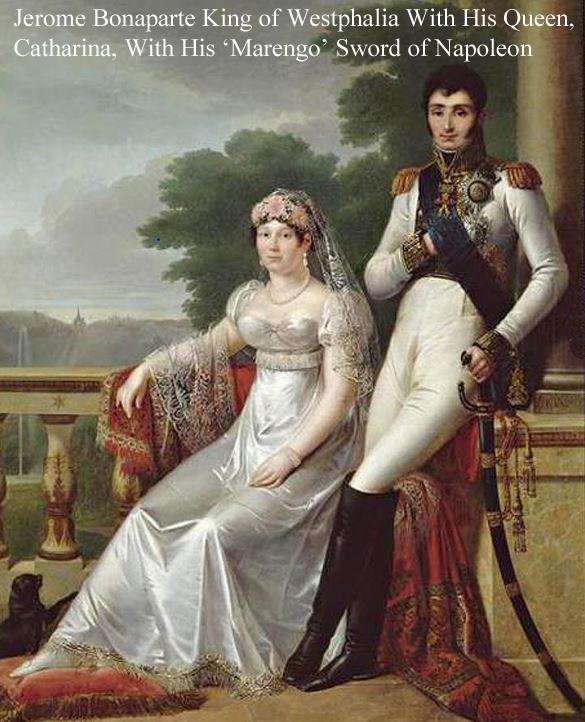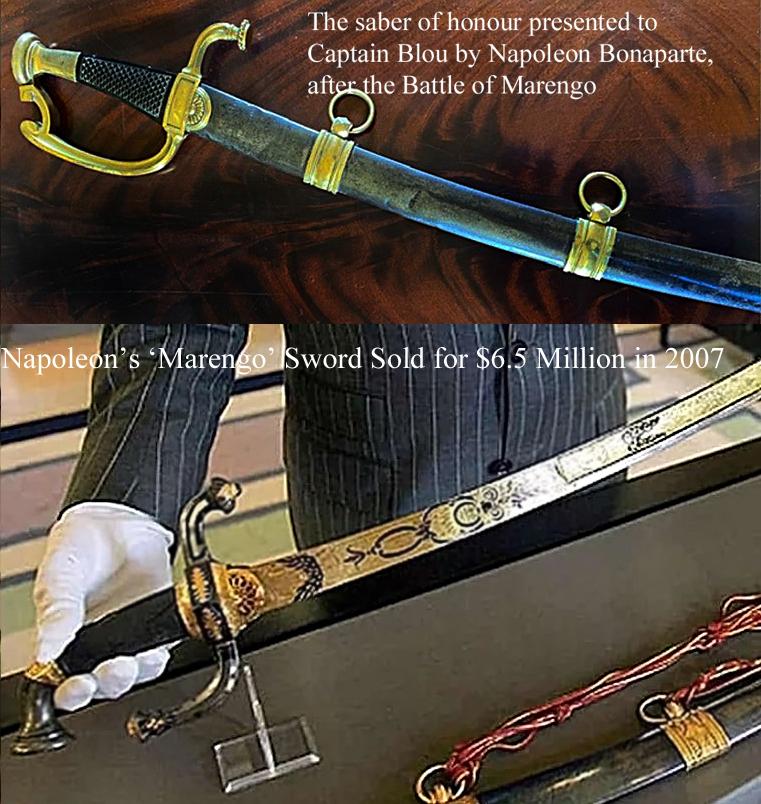A Fine French Consular Period Sabre of A Cavalry Officer, With 'Marengo' Hilt. A Sabre D'Officier De Cavalrie Legere, By Repute, Said To Be The Privilege of Officer's To Wear That Served At the Battle Of Marengo, Personally, With Napoleon
A very fine and rare example, in very fine condition for age, with a few usual scabbard combat bruises.
Modelled after Napoleon’s sabre, re-named by him the Marengo sabre, that he used from the battle of the Nile and at Marengo during his defeat of the Austrians. He presented it to his brother Jerome who was crowned King of Westphalia.
Napoleon ordered a sword to be commissioned based on his own sabre and presented it as a Sword of Honour to Captain Blou for his important and vital service at Marengo, and that sword is near identical to this sword that we offer. See photo 10 in the gallery. Napoleon’s Marengo sword was sold at auction in 2007 for $6.5 million dollars.
Sabre D'Officier De Cavalrie Legere, 1800 circa, with the 'Marengo' pattern hilt, and double fullered Montmorency pattern blade. A fabulous French Sabre from the French consular period.
An original Consular period, 'Marengo' style light cavalry officer's sabre, with very fine and bright Montmorency-style blade one-third beautifully engraved with an incised decoration of weapon trophies and foliage, gilt bronze hilt, mellon pattern pommel, single guard branch with a side engraved with a farandole of foliage, the front side has a V-shaped groove, the rear side has a concave gutter, basal half ear, quillon arched towards the front with button ending, cross hatched carved wooden grip, in its origina sheet brass scabbard, two large brass bands each carrying a supension ring,
These styles are said to have gained popularity following Consular Napoleon's victory over the Austrians in Jun 1800 at the Battle of Marengo. French sword cutlers purportedly drew their inspiration from the sabre carried by Napoleon during the campaign.
It has been claimed that only officers who had participated in the battle with Napoleon were permitted to carry this style of hilt, although there is no official recognition of this claim.
The Battle of Marengo was fought on 14 June 1800 between French forces under the First Consul Napoleon Bonaparte and Austrian forces near the city of Alessandria, in Piedmont, Italy. Near the end of the day, the French overcame General Michael von Melas' surprise attack, drove the Austrians out of Italy and consolidated Bonaparte's political position in Paris as First Consul of France in the wake of his coup d'état the previous November.
Bonaparte needed to depart for Paris urgently and the next morning sent Berthier on a surprise visit to Austrian headquarters. Within 24 hours of the battle, Melas entered into negotiations (the Convention of Alessandria) which led to the Austrians evacuating northwestern Italy west of the Ticino, and suspending military operations in Italy.
Bonaparte's position as First Consul was strengthened by the successful outcome of the battle and the preceding campaign. After this victory, Napoleon could breathe a sigh of relief. The generals who had been hostile to him could see that his luck had not abandoned him. Thus, he had surpassed Schérer, Joubert, Championnet, and even Moreau, none of whom having been able to inflict a decisive blow on the Coalition. Moreau's victory at Hohenlinden, which was the one that in reality had put an end to the war, was minimised by Bonaparte who, from then on, would pose as a saviour of the fatherland, and even of the Republic. He rejected offers from Louis XVIII, who had considered the Consulate to be a mere transition toward the restoration of the king. Thanks to the victory at Marengo, Napoleon could finally set about reforming France according to his own vision.
Napoleon ordered that several ships of the French Navy be named Marengo, including Sceptre (1780), Jean-Jacques Rousseau (1795), Ville de Paris (1851) and Marengo (1810). In 1802, the Marengo department was named in the honour of the battle. Furthermore, Napoleon's mount throughout the battle was named Marengo and further carried the Emperor in the Battle of Austerlitz, Battle of Jena-Auerstedt, Battle of Wagram, and Battle of Waterloo.
Code: 25313
4250.00 GBP





